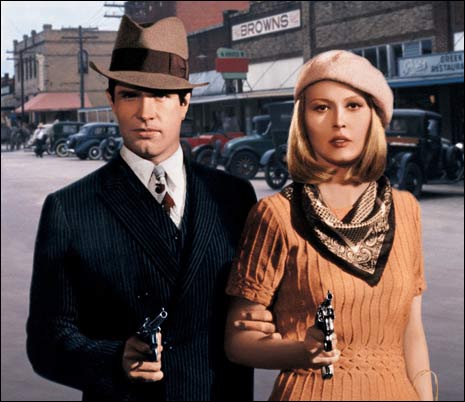Laurie Winer writing in the Los Angeles Review of Books about Brian Kellow’s new Pauline Kael bio:
“Kael assumed national prominence in 1967, exactly when movies were taking quantum leaps in depictions of sex and violence, causing, as such leaps always do, anguish among cultural gatekeepers. Her review of Bonnie and Clyde marked Kael’s real debut in the New Yorker — she had previously published one article there about movies on TV. With his review of the same film, Bosley Crowther saw his 27-year reign as movie critic at the New York Times come to an end; Kael knew how to read the new graphic nihilism, and Crowther, her avowed nemesis, was left in the dark. Crowther had long been a powerful critic, and he had had his day, opposing Eugene McCarthy and censorship, and helping Americans to accept foreign films such as Open City and The Bicycle Thief. Now he was exposed as perilously out of touch. He was such an advocate of film as a force for betterment that he could hardly tell one violent movie from another. He called Bonnie and Clyde ‘a cheap piece of bald-faced slapstick comedy that treats the hideous depredation of that sleazy, moronic pair as though they were as full of fun and frolic as the jazz-age cut-up in Thoroughly Modern Millie.’ The resistance to this position was so strong that he wrote a second screed, precipitating his forced retirement as a film critic at the end of 1967.
Kael’s response to Arthur Penn’s film was so visceral because she sensed it marked a change in her own life as well as a change in movies. She was 48 years old, the single mother of a daughter, a person who had come from a West Coast farming family and who had struggled long and hard and with precious little recognition. With Bonnie and Clyde she finally came into her own as a critic of stature, someone who could influence the course of events, and she was eager to insert herself into the cultural moment: ‘The audience is alive to it,’ she wrote of the film, as if anyone with sense felt her excitement:
Our experience as we watch it has some connection with the way we reacted to movies in childhood: with how we came to love them and to feel they were ours — not an art that we learned over the years to appreciate but simply and immediately ours.”
••••••••••
PK + WA, 1975:
See also:
Tags: Brian Kellow, Laurie Winer, Pauline Kael

